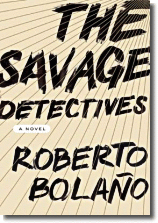The top two items from the list:

1. As one of the handful of writers to play first class cricket, he was so proud of getting the legendary batsman W.G. Grace out (caught by the wicket-keeper off his bowling) that he composed a celebratory poem called ‘A Reminiscence of Cricket’ which began:
‘Once in my heyday of cricket,
Oh, day I shall ever recall!
I captured that glorious wicket,
The greatest, the grandest of all.’2. He tested drugs on himself. He wasn’t a cocaine addict like his creation, Sherlock Holmes, but, as a student doctor, he was fascinated by the effects of alkaloids as drugs. As a locum in Birmingham he tested the effect of the potentially poisonous plant gelseminum on himself, gradually increasing the amount well past the fatal dose. The wife of the doctor he was working for threatened to tell his mother. But he wrote up the experiment for the British Medical Journal.
Read Lycett's full list.
The Page 69 Test: The Man Who Created Sherlock Holmes.
--Marshal Zeringue




















































